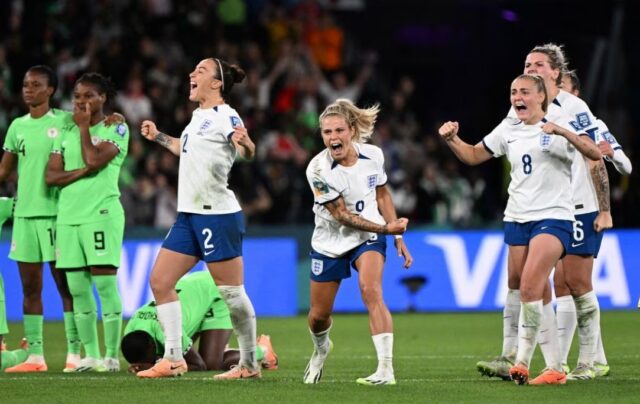As the FIFA Women’s World Cup continues in Australia and New Zealand, the race for semifinal positions is set to kick off, but regrettably, no African team remains in contention.
Read Also: Napoli In Locked Discussion Over Victor Osimhen’s Renewal Amid Saudi Interest
This recurring trend highlights the uphill battle African women’s football faces on the global stage.
Since the inception of the Women’s World Cup in 1991, no African team has managed to secure a spot in the semifinals. The closest any African side came was Nigeria’s Super Falcons in the USA ’99 edition, making it to the quarterfinals under the guidance of the late coach Ismaila Mabo.
Even as the tournament showcased glimpses of African potential this year, with three of the four African representatives reaching the round of 16, ultimately, hopes were dashed. The Super Falcons of Nigeria demonstrated moments of brilliance in their group matches, but the dream of a quarterfinal ticket was quashed by the Three Lionesses of England, who emerged victorious in a penalty shootout.
South Africa’s Banyana Banyana, too, saw their journey cut short, falling to The Netherlands in the round of 16. Zambia, despite a win in their final group match against China, had to exit the competition with a goal deficit.
The ongoing tournament has shifted its focus towards the European contingent, with UEFA leading the pack, boasting five out of the eight quarterfinalists—England, The Netherlands, France, Spain, and Sweden. Meanwhile, the Asian confederation is represented by Australia and Japan, and South America has one contender, Colombia. Astonishingly, the African continent, housing 54 FIFA nations, has no team advancing to the quarterfinals, a stage where each player would earn $90,000.
Coach Edwin Onowvotafe of Cable Football Academy points to the deficiencies in the quality and standard of African football as a primary reason for this underwhelming performance. “It is really disappointing that all the three teams crashed out in the round of 16. It showed Africa still has some distance to cover in the Women’s World Cup,” Onovwotafe lamented.
With even defending champions the USA, along with traditionally strong teams like Brazil and Germany, failing to progress from the group stage, the tournament landscape has shifted dramatically. As it currently stands, the trophy seems destined for Europe, with at least one European country guaranteed a semifinal finish and a spot on the podium. The absence of African teams in the semifinals serves as a stark reminder of the challenges that must be overcome to elevate the continent’s women’s football to international prominence.









